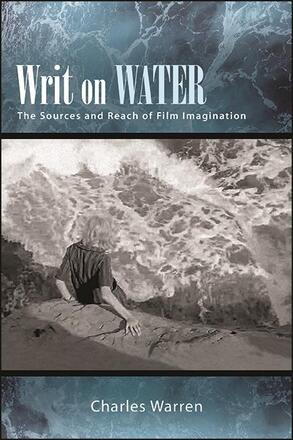
Writ on Water
The Sources and Reach of Film Imagination
Alternative formats available from:
A powerful and original statement on the nature of film and the intimate relation of “film imagination” to our lives as human beings in the world.
Description
This eloquent book draws on the author's responses to a wide range of extraordinary films—"long takes" on Altman's Nashville, Godard's Hail Mary, Makavejev's WR: Mysteries of the Organism, and von Sternberg's Blonde Venus, as well as "short takes" on films by Jean Rouch, Chris Marker, Chantal Akerman, Ross McElwee, Michelangelo Antonioni, Michael Haneke, and Jean-Pierre and Luc Dardenne. Charles Warren's masterful close readings blend profound philosophical reflections with a treasure trove of literary and artistic references to place film, in its relations to other arts, as one of the greatest aesthetic forms. Collectively, these essays offer an original and powerful statement on the nature of film and the intimate relation of what the author calls "film imagination" to our lives as human beings in the world. This important and much-needed book is no less than a celebration and affirmation of the very discipline of film criticism. One is left with one's appetite for film refreshed.
Charles Warren (1948–2021) was Senior Lecturer in the Film and Television Department at Boston University and Associate of the Visual and Environmental Studies Department at Harvard University. He was the editor or coeditor of several collections of essays, including Beyond Document: Essays on Nonfiction Film; Making Dead Birds: Chronicle of a Film; and Looking with Robert Gardner (with Rebecca Meyers and William Rothman), also published by SUNY Press.
Reviews
"Writ on Water aims to do no less than reignite questions about what is the film imagination, and how does it provoke our questioning—philosophizing even—on the nature of the human condition as expressed in cinema? Warren draws on his own personal responses to the films under discussion to demonstrate the point of the argument: that one cannot ignore one's subjective response to the influence of cinema. It is, in this way, a powerful statement on the nature of film and film spectatorship." — Daniel Varndell, author of Hollywood Remakes, Deleuze and the Grandfather Paradox